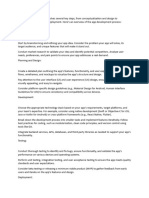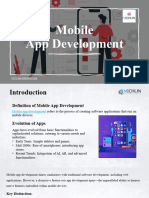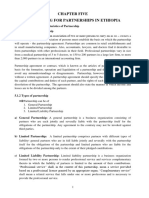0% found this document useful (0 votes)
274 views3 pagesMobile App Development Roadmap With Estimated Timeframes
The document outlines a comprehensive roadmap for mobile app development, detailing foundational skills, development platforms, project building, advanced learning, community engagement, and staying updated with trends, with an estimated total time of 6-12 months. It also provides a step-by-step guide for launching a mobile app, including market research, development platform selection, marketing strategy, beta testing, and app store submission. Recommended platforms for development include Android Studio, Xcode, Flutter, and React Native.
Uploaded by
olyadnegeroCopyright
© © All Rights Reserved
We take content rights seriously. If you suspect this is your content, claim it here.
Available Formats
Download as DOCX, PDF, TXT or read online on Scribd
0% found this document useful (0 votes)
274 views3 pagesMobile App Development Roadmap With Estimated Timeframes
The document outlines a comprehensive roadmap for mobile app development, detailing foundational skills, development platforms, project building, advanced learning, community engagement, and staying updated with trends, with an estimated total time of 6-12 months. It also provides a step-by-step guide for launching a mobile app, including market research, development platform selection, marketing strategy, beta testing, and app store submission. Recommended platforms for development include Android Studio, Xcode, Flutter, and React Native.
Uploaded by
olyadnegeroCopyright
© © All Rights Reserved
We take content rights seriously. If you suspect this is your content, claim it here.
Available Formats
Download as DOCX, PDF, TXT or read online on Scribd
/ 3
























































































